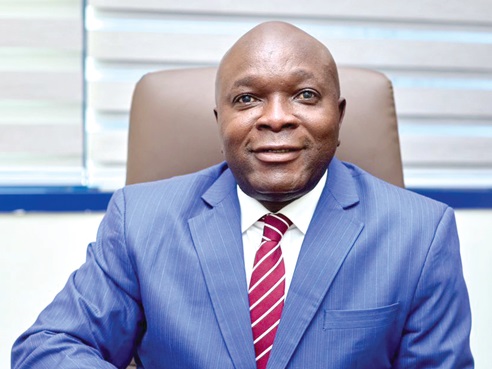The New Patriotic Party (NPP) has taken a bold step toward reforming its internal democratic processes by adopting a significant amendment to its constitution that will expand the Electoral College responsible for electing the party’s presidential candidate for the 2028 general elections.
The announcement was made at the NPP’s National Annual Delegates Conference held on Saturday, July 19, 2025, at the University of Ghana Stadium, where thousands of delegates from across the country gathered to deliberate on the party’s future following its electoral defeat in 2024.
Delivering the report of the Constitution Amendment Committee, its chairman Frank Davies disclosed that the party had officially adopted the proposed 2025 amendment to broaden the scope of eligible voters in its flagbearer primaries.
“Whereas the National Council of the party has, pursuant to Article 13(1) of the constitution, scheduled January 31, 2026, as the date to elect the party’s 2028 presidential candidate,” Davies announced, “the National Annual Delegates Conference has adopted an amendment to expand the Electoral College for this purpose.”
Expanded Electoral College Membership
Under the revised structure, the Electoral College will now include a wide array of former officeholders and party loyalists, namely:
All former Members of Parliament (MPs)
All former parliamentary candidates
All former Metropolitan, Municipal, and District Chief Executives (MMDCEs)
All card-bearing former ministers and deputy ministers
All former regional, constituency, and branch executives
All members of the National Council of Elders and National Council of Patrons
All regional and constituency patrons and elders
All TESCON (Tertiary Students Confederacy) coordinators
This represents a significant departure from the previous model, which was largely limited to current party executives at various levels and a select group of delegates.
A Move Toward Greater Inclusion
Party leaders say the move is aimed at deepening internal democracy, enhancing transparency, and making the flagbearer selection process more inclusive and representative.
Political observers believe this decision is part of the NPP’s broader strategic repositioning after losing power in the 2024 general elections, when the National Democratic Congress (NDC) reclaimed the presidency. With party unity a key concern following internal divisions over leadership succession, this constitutional overhaul is seen as an attempt to rebuild confidence among the rank-and-file and leverage the experience of past officeholders.
Historical Context
The NPP has traditionally maintained a tiered Electoral College system, but it has occasionally come under fire from within for being too narrow or elitist. In 2010, the party expanded the College from just over 2,300 delegates to more than 113,000 ahead of the 2012 elections—a move that was then hailed as a democratic milestone.
This latest amendment, coming a full three years ahead of the 2028 elections, underscores the party’s intent to remain competitive and responsive to its grassroots base.
As preparations begin for the January 31, 2026 presidential primary, party insiders suggest the expanded Electoral College could change the dynamics of the race, opening the door to new contenders and reshaping campaign strategies.


